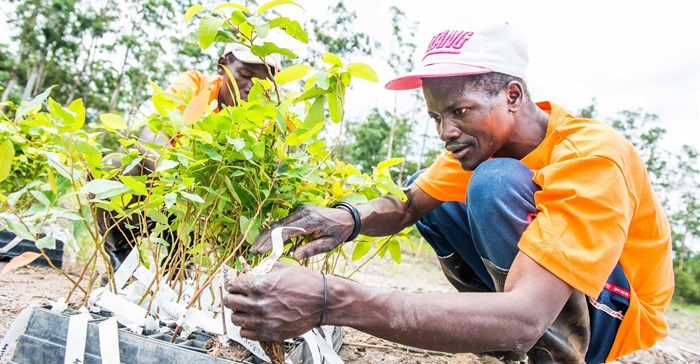In Angola, which has significant developmental challenges right across the country, we have identified and supported several industrial sectors that have strong socio-economic potential. One of our most recent is a company whose success will have a very clear short, medium and long-term impact on communities in Angola. We also believe that it will have a net positive effect on the natural environment.

The goal for the company involved, Estrela da Floresta, is to create a completely new sustainable forestry company that develops new forestry plantations and rehabilitates older plantations that have been neglected. The plantations are in the provinces of Huambo, Benguela, Huila and Bie.
For us to know that we are doing the right thing by investing in timber plantations, we needed to have an assurance that the initiative is sustainable and, most importantly, commercially viable – without long-term state support. This is obviously critical knowledge for investors, who we have a duty towards. But for the project to deliver gains for investors and the people of Angola, the Estrela project must become a truly competitive global player in the forest industry sector.
As an investment company that has expertise in the nuances of the Angolan society and economy, we can support Estrela da Floresta on that important journey in the development of best practices through industry benchmarking, research and development. And we can advise on the complexities of moving into large plantations that in some areas have been logged illegally by foreign companies. In many cases, disused plantations have been turned into small subsistence farms that provide a living for poor rural communities. These are important considerations for all of us involved in the project.
Those considerations played an important part in our decision to invest in Estrela da Floresta because the potential for community upheaval in such a scenario is significant. So too is the prospect of environmental damage. These are two troubling issues that investors will always be cautious of. Estrela da Floresta’s USP is its focus on creating a sustainable ecosystem – a self-sustaining business model that will create new commercial opportunities by bringing to the market products that have been traditionally difficult to access in the African continent.
Importantly, it actively promotes sustainable forestry practices across Africa, implementing of measures that protect the natural habitat. This includes the protection of local flora and fauna, in addition to considering local communities and their traditional rights. The Company deploys specially trained community liaison managers to work with small subsistence farmers: not to ease them away from the development but to involve them by means of sustaining themselves through involvement in the project. This includes offering skills and work experience to people living in such communities.

From a commercial perspective, Estrela da Floresta provides investors and community stakeholders with confidence by contributing to the widening timber supply gap right across the continent – in addition to acting as a catalyst for a new supply chain and job creation. It is anticipated that 97% of jobs created will be for Angolan nationals, across all four provinces, with projections of 6,000 new jobs in Huambo and 4,000 in the Province of Benguela.
Environmentally, harvesting the country’s existing mature plantations (part of the company’s scope of work) will have a positive environmental impact by reducing pressure on natural forests in other African countries. The new plantations will be established and managed to meet internationally recognised standards for environmental, social and economic sustainability.
These man-made plantations are good news for the natural environment and socio-economic growth. Sustainable, ethical and community-friendly logging practices on man-made plantations are a win-win for the country, its people, and the natural environment. And for large investment companies that are seeking to deliver reliable returns to investors over the long-term, projects such as Estrela da Floresta represent a valid and responsible success story.